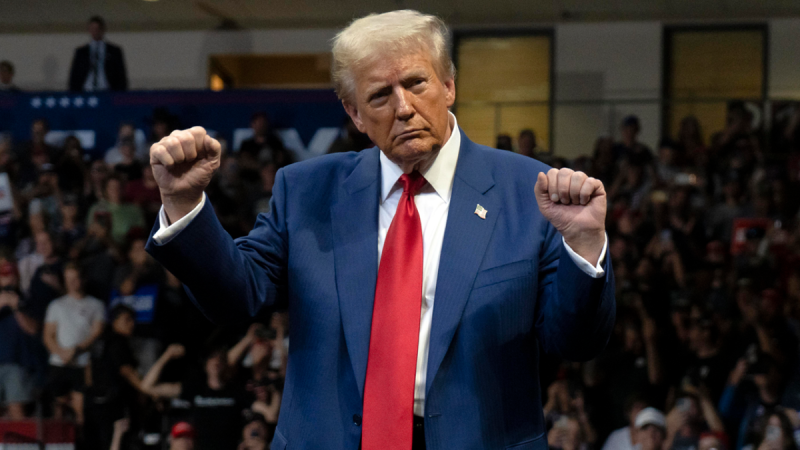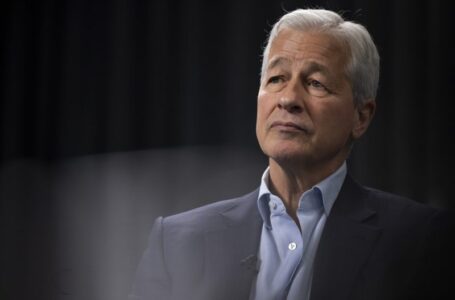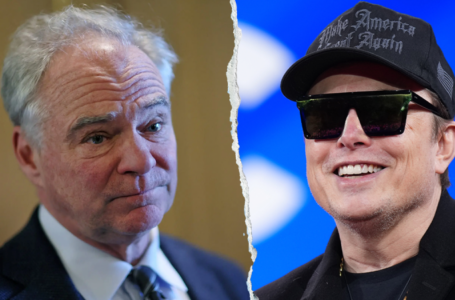Pope Francis is improving and is no longer in ‘imminent danger,’ Vatican source says
3 numbers that explain November election results – it wasn’t about Kamala


A month out – and there’s only one verdict for the November outcome: Joe Biden lost.
Yes, that’s not a typo: Biden lost.
Heading into the campaign (a year ago). There were three poll numbers that stood out: 30, 40 and 97.
The 30%, that’s (roughly) the percentage of Americans who thought the country was on the ‘right track.’ The 40% (roughly) was the percentage of Americans who approved of Biden’s performance as president.
Those were not good numbers for the incumbent.
To compound the challenge, there’s the third number: 97%. That’s the percentage of Trump supporters (half the country) who thought that ‘things were just better when he was President.’
That’s an even worse number for anyone (anyone) running against him. It meant the notion that one could make the electorate focus on Trump was a fool’s errand: His voters actually supported him – one couldn’t revert to ‘the other guy is worse.’
Those three numbers (from January 2024) were not the result of a big advertising campaign… they were the result of three years of the Biden administration.
When Biden took office in 2021, he knew he had a simple but audacious goal: Prove that American government can work.
In the wake of the COVID pandemic, Trump’s efforts to reduce government regulation, and adhere to Reagan’s mantra (from his first inaugural), ‘government is not the solution to our problem; government is the problem,’ the Biden administration was going to convince Americans that American governmental institutions were going to help alleviate a range of problems.
His goal was to prove that both domestically… and internationally… especially in the face of the growing rivalry with China. He said as much in his first speech to Congress: ‘[President Xi of China] and others think that democracy can’t compete in the 21st century with autocracies because it takes too long to get consensus.’
Biden was going to prove them wrong.
A Biden partisan put it to me more tactically: ‘We’ll get ‘shots-in-the-arms’ – defeat COVID – pass an enormous infrastructure bill – and run on ‘Morning in America’ in 2024.’
Biden supporters would still argue they got much of it done.
By October of Biden’s first year, almost 75% of Americans had received at least one shot, strengthening the public health institutions of the country.
By November, Biden had signed a trillion-plus dollar infrastructure bill, designed to fund the kind of projects that only effective government institutions can develop.
In the wake of the Russian invasion of Ukraine, Biden successfully got two formerly ‘non-aligned’ countries (Sweden and Finland) to join NATO – strengthening that institution that many believed maintained peace in Europe since World War II.
In the face of the growing threat from China, Biden orchestrated the ‘Quad’ – an alliance among India, Japan, South Korea and the U.S.
But none of it made any real difference – where it counts in politics – with the incumbent’s job approval.
Why?
Voters didn’t feel it. All the achievements made for great press releases and a few good stories, and likely changed the minds of some well-informed newspaper readers – but not the kind of thing that moves voters.
By the time 75% of Americans had felt the pain of a shot-in-the-arm, and were looking forward to having COVID in the rearview mirror, the Delta and Omicron variants had arrived – against which the vaccine was less effective. And that skepticism made a difference in the election.
According to the Fox News Voter Analysis (FNVA), while half of Americans want the government more involved in ensuring children get vaccinated, a third of them voted for Trump – while he got roughly two-thirds of the support of the half of American voters who wanted the government to retain or reduce their current involvement in childhood vaccination.
Folks may have heard about the infrastructure bill – or the CHIPs Act (which set up an institution to invest in U.S. high-tech manufacturing) – or the so-called Inflation Reduction Act – which did put a cap on insulin costs. But the kind of projects that people will notice – construction of a new bridge or the opening of a new factory – won’t be ready for ribbon cutting until Donald Trump is campaigning for Republicans in the 2026 midterm election.
And some might believe that strengthening NATO and creating a new international institution to try to respond to China’s international ambitions might be useful, but with the Ukraine war still a stalemate after almost three years of fighting, it’s no wonder that many American voters remain skeptical about international institutions.
Indeed, according to the FNVA, while over half of voters supported aid to Ukraine, almost a third of them voted for Trump – while he got over 70% of the vote of the slightly less than half who opposed further aid.
Would it have been better if Biden had been less cautious – and gave Ukraine planes and other authorization to fight more aggressively (and made Biden look strong if Ukraine had used them effectively)? No one knows – but a stalemate underscored his weakness.
One event in the Biden presidency did make a difference to voters: the pullout from Afghanistan. Biden’s job approval sank in the aftermath of the disastrous airport scene – and never recovered. As George C. Scott, playing General Patton in the movie 1970 ‘Patton,’ ‘Americans love a winner and will not tolerate a loser.’
Yes, some, even former Watergate sleuth Bob Woodward, who has written critically of almost every president since Nixon, wrote in his book ‘War,’ that Biden’s handling of the Russian-Ukraine and Israel-Gaza wars, would be ‘largely studied in history as an example of steady and purposeful leadership.’
You could argue that, governmentally, what the Biden folks put in place will likely result in political payoffs in the coming months.
The Russian ruble is falling – and the economy teetering – in a way that may make Putin willing to cut a deal favorable to Ukraine.
The Israelis – having fought a war for over a year – may be willing to cut a longer term deal with anti-Iranian Arab countries – building on Biden’s work with the Saudis (and Trump’s Abraham Accords).
There are 65,000 infrastructure projects that are already underway.
There are multiple high-tech manufacturing plants in process, leveraging support of the Chips Act.
If any of those things come to pass, the Democrats will give credit to the Biden Team – but they’re unlikely to be at the ‘ribbon-cutting.’
Governmentally, maybe he did achieve some stuff. But, politically, he doomed himself to be a one-term president, and likely made it impossible for any Democrat to win the presidency in 2024 – because none of what they got passed or set up institutionally was able to positively affect voters’ lives or have sufficiently dramatic impact to make voters believe that ‘Government Can Improve Your Life.’











